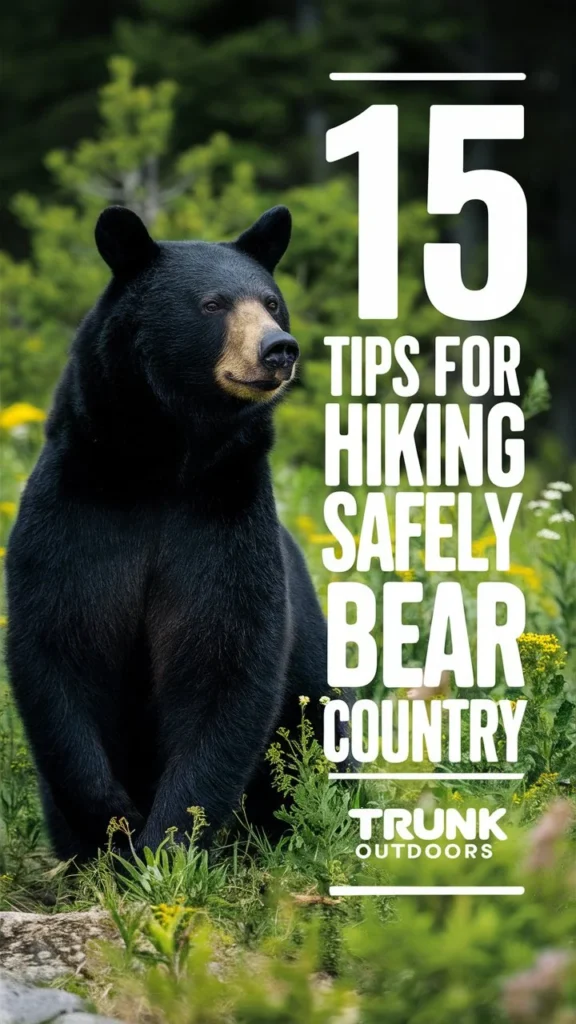15 Essential Tips for Hiking Safely in Bear Country
Hiking in bear country can be an exhilarating experience, but it requires extra precautions to ensure your safety and the wellbeing of local wildlife. Follow these expert-recommended tips to minimize risks and enjoy your outdoor adventure responsibly.
1. Make Noise on the Trail
Bears typically avoid human encounters. Alert them to your presence by talking loudly, singing, or using bear bells. This gives bears time to move away before you get too close.
2. Hike in Groups
There’s safety in numbers. Hiking with at least one other person reduces your chances of surprising a bear and provides backup if needed.
3. Carry Bear Spray and Know How to Use It
Bear spray is your most effective defense. Keep it easily accessible and practice using it before your hike. Aim for the bear’s face and eyes if charged.
4. Be Alert and Watch for Signs
Look for bear tracks, scat, and claw marks on trees. Stay vigilant, especially in areas with limited visibility or near water sources.
5. Avoid Peak Bear Times
Bears are most active at dawn, dusk, and night. Plan your hikes during daylight hours to reduce the likelihood of an encounter.
6. Store Food Properly
Use bear-resistant food containers or hang food at least 10 feet high and 4 feet from the trunk of a tree. Never keep food in your tent.
7. Cook and Eat Away from Camp
Prepare and consume meals at least 100 yards from your campsite to avoid attracting bears to your sleeping area.
8. Keep a Clean Camp
Pack out all trash and food scraps. Bears have an incredible sense of smell and can be attracted by even small amounts of food residue.
9. Avoid Scented Products
Leave perfumes, scented lotions, and strongly-scented foods at home. These can attract curious bears.
10. Stay on Designated Trails
Stick to established paths to reduce your chances of surprising a bear in dense vegetation.
11. Give Bears Space
If you spot a bear from a distance, give it a wide berth. Never approach bears for photos or a closer look.
12. Know How to React in an Encounter
For black bears, stand your ground and make yourself look big. For grizzlies, avoid eye contact and slowly back away. Never run from a bear.
13. Carry a First Aid Kit
Be prepared for emergencies with a well-stocked first aid kit and the knowledge to use it.
14. Check Local Advisories
Before your trip, check with park rangers or local authorities for recent bear activity and any trail closures.
15. Leave No Trace
Practice responsible outdoor ethics to protect bear habitat and minimize human impact on their environment.


By following these guidelines, you’ll greatly reduce the risk of negative bear encounters and contribute to the conservation of these magnificent animals. Remember, you’re a visitor in their home – respect wildlife and enjoy the beauty of bear country safely and responsibly.